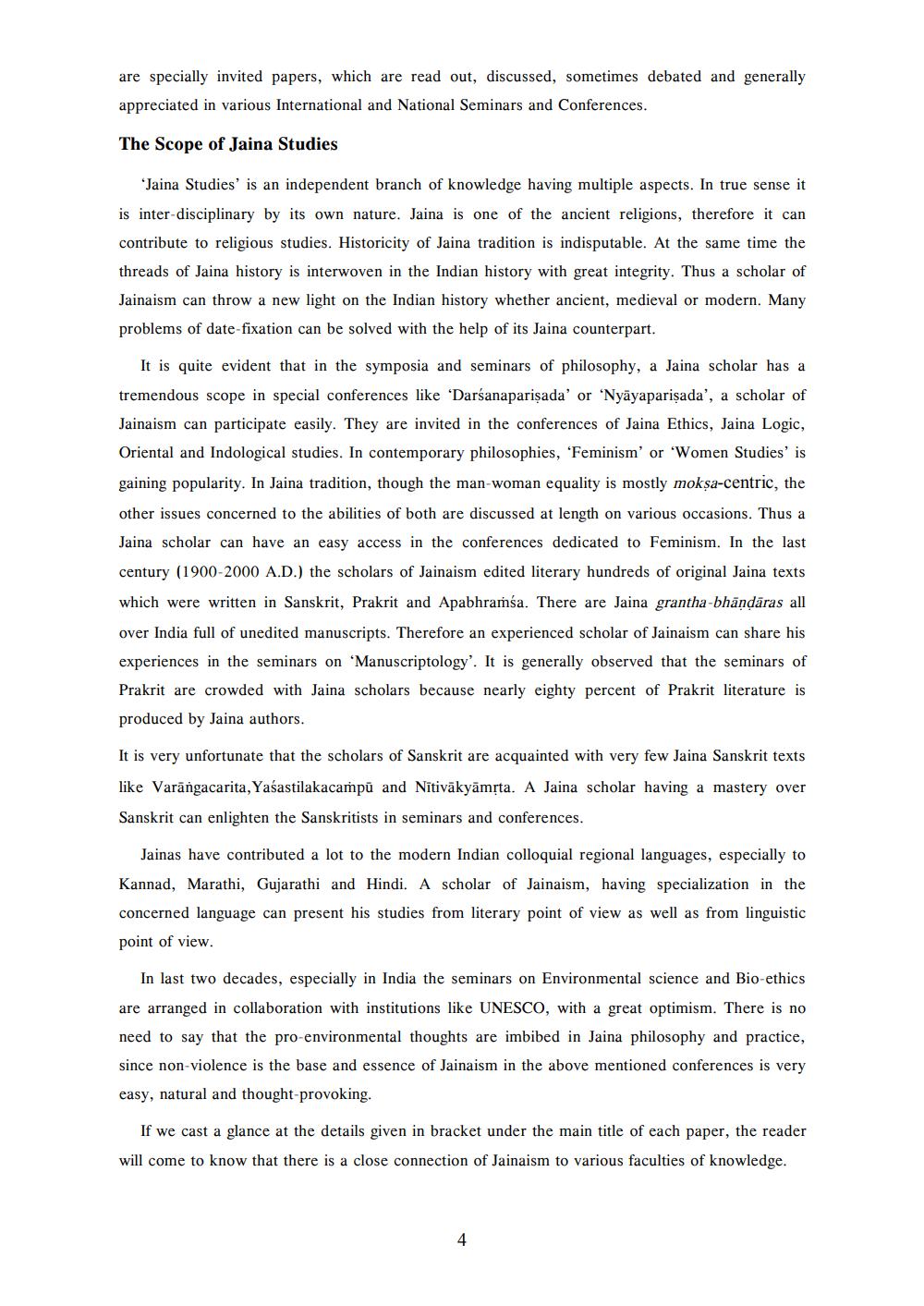Book Title: Collected Research Papers in Prakrit and Jainology Vol 02 Author(s): Nalini Joshi Publisher: University of Pune View full book textPage 4
________________ are specially invited papers, which are read out, discussed, sometimes debated and generally appreciated in various International and National Seminars and Conferences. The Scope of Jaina Studies 'Jaina Studies' is an independent branch of knowledge having multiple aspects. In true sense it is inter-disciplinary by its own nature. Jaina is one of the ancient religions, therefore it can contribute to religious studies. Historicity of Jaina tradition is indisputable. At the same time the threads of Jaina history is interwoven in the Indian history with great integrity. Thus a scholar of Jainaism can throw a new light on the Indian history whether ancient, medieval or modern. Many problems of date-fixation can be solved with the help of its Jaina counterpart. It is quite evident that in the symposia and seminars of philosophy, a Jaina scholar has a tremendous scope in special conferences like 'Darśanaparişada' or 'Nyāyaparişada', a scholar of Jainaism can participate easily. They are invited in the conferences of Jaina Ethics, Jaina Logic, Oriental and Indological studies. In contemporary philosophies, 'Feminism' or 'Women Studies' is gaining popularity. In Jaina tradition, though the man woman equality is mostly mokşa-centric, the other issues concerned to the abilities of both are discussed at length on various occasions. Thus a Jaina scholar can have an easy access in the conferences dedicated to Feminism. In the last century (1900-2000 A.D.) the scholars of Jainaism edited literary hundreds of original Jaina texts which were written in Sanskrit, Prakrit and Apabhramsa. There are Jaina grantha-bhāndāras all over India full of unedited manuscripts. Therefore an experienced scholar of Jainaism can share his experiences in the seminars on 'Manuscriptology'. It is generally observed that the seminars of Prakrit are crowded with Jaina scholars because nearly eighty percent of Prakrit literature is produced by Jaina authors. It is very unfortunate that the scholars of Sanskrit are acquainted with very few Jaina Sanskrit texts like Varāngacarita, Yasastilakacampū and Nītivākyāmrta. A Jaina scholar having a mastery over Sanskrit can enlighten the Sanskritists in seminars and conferences. Jainas have contributed a lot to the modern Indian colloquial regional languages, especially to Kannad, Marathi, Gujarathi and Hindi. A scholar of Jainaism, having specialization in the concerned language can present his studies from literary point of view as well as from linguistic point of view. In last two decades, especially in India the seminars on Environmental science and Bio-ethics are arranged in collaboration with institutions like UNESCO, with a great optimism. There is no need to say that the pro-environmental thoughts are imbibed in Jaina philosophy and practice, since non-violence is the base and essence of Jainaism in the above mentioned conferences is very easy, natural and thought-provoking. If we cast a glance at the details given in bracket under the main title of each paper, the reader will come to know that there is a close connection of Jainaism to various faculties of knowledge.Page Navigation
1 2 3 4 5 6 7 8 9 10 11 12 13 14 15 16 17 18 19 20 21 22 23 24 25 26 27 28 29 30 31 32 33 34 35 36 37 38 39 40 41 42 ... 170
